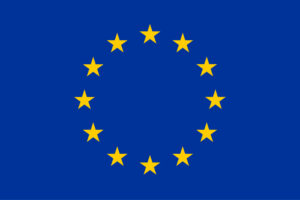The UniSAFE project came to its end in January 2024. Its follow-up project GenderSAFE was launched in March 2024. GenderSAFE builds upon the results and tools developed in UniSAFE, and aims to support research and higher education institutions in setting up comprehensive policies to effectively counteract gender-based violence. Materials generated by GenderSAFE will be added to the UniSAFE toolkit and marked accordingly for reference. Click here to learn more about GenderSAFE.
About this toolkit, UniSAFE and acknowledgements
About this toolkit.
Gender-based violence is a complex and pervasive reality. While research organisations and higher education institutions increasingly acknowledge their institutional responsibility in addressing gender-based violence, setting up effective policies and tools to address this remains challenging.
Where to start? How can institutions promote cultural change? What key elements should a policy include? How should an institution respond to disclosure? How to better protect students and staff? What are some best practices from other institutions in Europe? And what is the scale of gender-based violence within European higher education and research organisations?
This toolkit has been developed to support higher education institutions and research organisations in addressing gender-based violence. Whether you have just started to reflect on how to address this within your institution, are designing a policy or are more advanced and seeking to improve your institutional policy or its implementation, you are at the right place!
UniSAFE’s outputs are based on a holistic framework – the 7P model – which will help you design comprehensive policies, covering all aspects such as prevalence, prevention, protection, prosecution, provisions of services, and partnerships.
The UniSAFE toolkit is based on materials collected and analysed with the specific aim to develop guidance and tools for supporting institutional policy development and practice, along the 7P model. The materials underpinning the toolkit consist of the theoretical framework (Mergaert et al., 2023), two sets of policy mappings, a quantitative survey, in-depth interviews with victims/survivors, and institutional case studies. Additionally, nine workshops were run between November 2022 and June 2023 with researchers and experts to gather input for the development of tools to address and stop gender-based violence in higher education and research organisations. The empirical material for the different strands of the UniSAFE research has been collected in European academic settings, higher education, and research institutions. This toolkit addresses different aspects that are required for a comprehensive institutional approach to addressing gender-based violence, and does not focus on any specific form of violence.
We hope you find this toolkit inspiring as well as useful to develop effective policies and implement concrete measures in your institution, as we work together towards providing students and staff a safe place to study and work!
The UniSAFE toolkit was authored by the Yellow Window team (Lut Mergaert, Vasia Madesi, Panagiota Polykarpou and Nathalie Wuiame), with contributions from UniSAFE partners.
About the UniSAFE Project.
UniSAFE is a Horizon2020-funded project that aims to produce better knowledge on gender-based violence and sexual harassment in research performing organisations, and to translate this knowledge into operational tools for higher education, research organisations and policymakers.
Research and outreach activities targeting researchers, stakeholders and policy-makers have been carried out across Europe for three years (2021-2024). The project has analysed gender-based violence – its social determinants, antecedents and consequences – using a holistic research model. This in-depth knowledge of existing problems, current and future priorities has resulted in this operational toolkit to reduce gender-based violence in the European academic and research area.
For more information, visit UniSAFE official website: https://unisafe-gbv.eu/
Acknowledgements
We would like to express our heartfelt gratitude to the countless individuals who contributed to the development of this toolkit for addressing gender-based violence in research performing organisations. Without their invaluable support, this project would not have been possible.
First and foremost, we extend our deepest appreciation to the survivors of gender-based violence who bravely shared their experiences and insights. Your courage and resilience have been instrumental in shaping the content and approach of this toolkit. Your voices serve as a powerful reminder of the urgency and importance of addressing gender-based violence within research communities.
We are immensely grateful to our team of dedicated researchers, practitioners, and experts who lent their expertise and time to the development of this toolkit. Their knowledge and commitment have been indispensable in crafting comprehensive strategies and actionable recommendations. Their unwavering dedication to promoting safe, inclusive, and equitable research environments has made a lasting impact on this project.
We extend our sincere thanks to the research performing organisations that actively participated in the consultation process and workshops. Your willingness to engage in open dialogue, share insights, and provide valuable feedback has been invaluable. We are grateful for your collaboration.
We are humbled and honoured to have had the opportunity to collaborate with such an exceptional group of stakeholders. Their collective efforts have resulted in a toolkit that will hopefully serve as a valuable resource for research performing organisations striving to address and eliminate gender-based violence. Together, we can create safer, more inclusive research environments for all.


 The contents of this website were developed by Yellow Window and do not necessarily reflect the views of the EC. This project has received funding from the European Union’s Horizon 2020 research and innovation programme under grant agreement no. 101006261
The contents of this website were developed by Yellow Window and do not necessarily reflect the views of the EC. This project has received funding from the European Union’s Horizon 2020 research and innovation programme under grant agreement no. 101006261